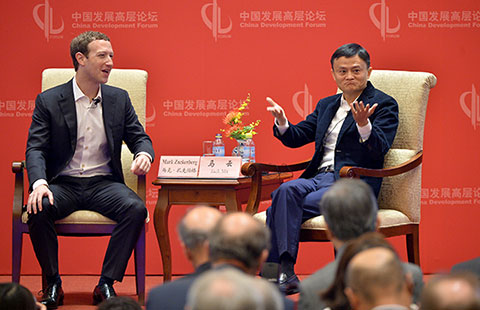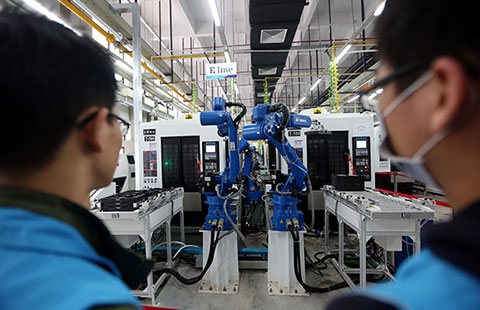China's green transition boosts national, global economy
(Xinhua) Updated: 2012-10-02 10:48COPENHAGEN -- China's rapid transition to a green economy will be a boom both to its domestic market and the global economy, especially renewable energy industry, leading experts here have said.
Commitment to developing a sustainable economy, emphasizing domestic consumption, and putting a green economy at the heart of the planning process, already form the basis of China's ongoing 12th Five-Year Plan.
"We definitely need China to succeed if the world is to succeed. Whatever China does will have global repercussions because a lot of the world's manufacturing is going on there," said Nis Hoeyrup Christensen, advisor on Chinese affairs at the Confederation of Danish Industry (CDI), and researcher in China's renewable energy sector at Copenhagen Business School.
He added that a green transition in China's manufacturing model will have especial relevance where it concerns production for the domestic market, "because that amounts to a lot of economic activity."
The UN's Environment Program defines the green economy as one where "growth in income and employment should be driven by public and private investments that reduce carbon emissions and pollution, enhance energy and resource efficiency, and prevent the loss of biodiversity and ecosystem services."
For its part, China is making a green refurbishment of its economy under a number of key headings defined in its 12th Five-Year Plan. These include that value-added output of emerging strategic industries will account for eight percent of gross domestic product (GDP), and that the country's manufacturing base in coastal regions will transit to high-end manufacturing, services and research and development.
Keystones in China's greening process include replacing coal-fired plants with those run on renewable sources like bio-mass, wind energy and solar power. Other areas involve better insulation of homes and offices to cut heating bills, combined urban heating and power networks, more recycling, improving energy-efficiency of production facilities, and developing alternative-fuel cars.
In fact, China is now the world's largest maker of wind turbines and solar panels, and its largest market for wind power. Moreover, the Chinese government says it plans to increase the share of non fossil-fuel based energy in the country's total energy consumption to 11.4 percent in 2015, up from 8.3 percent in 2010.
Green model
Denmark and its Nordic neighbors, who have been first-movers in the global green growth arena, could stand to benefit commercially from China's rapid green transition.
- China makes gains, faces hurdles in extending financial services
- SoftBank staffs cell phone store with Pepper robots
- Domestic e-cycles maker Yadea unveils 'smart' scooter
- Premier Li underscores global cooperation while meeting entrepreneurs
- Vice Premier urges efforts to boost foreign trade
- CNOOC profits plunge on lower oil prices
- Hainan Airlines posts 15.88% profit increase
- Enterplorer to open enterprise mobile officing era
















